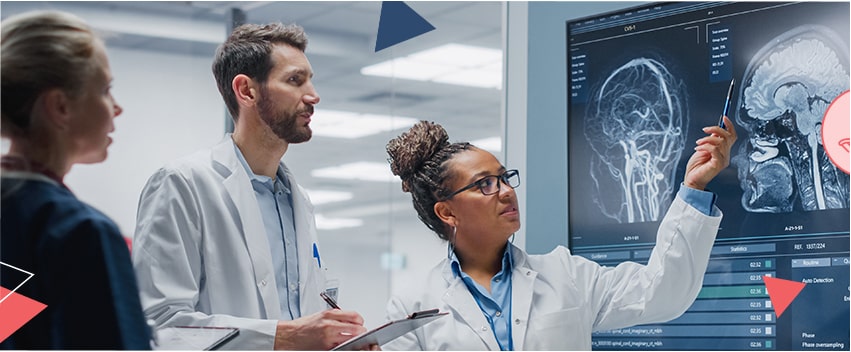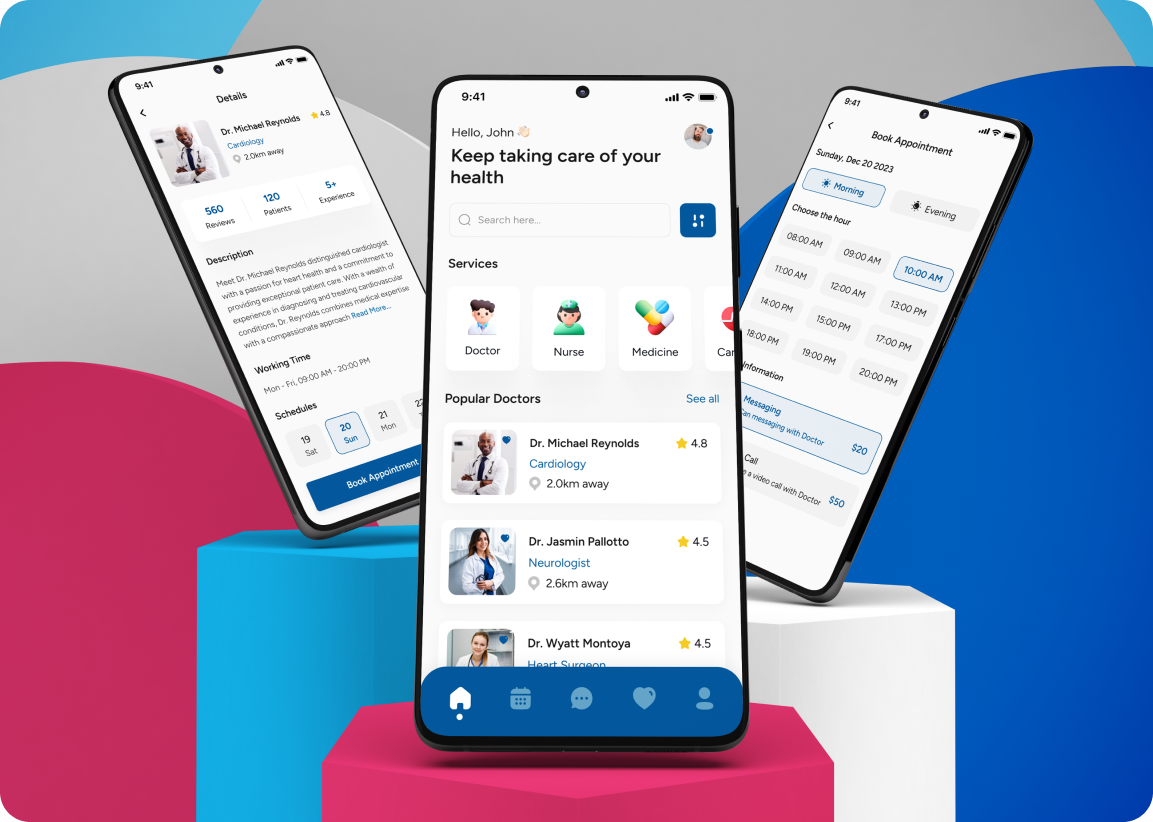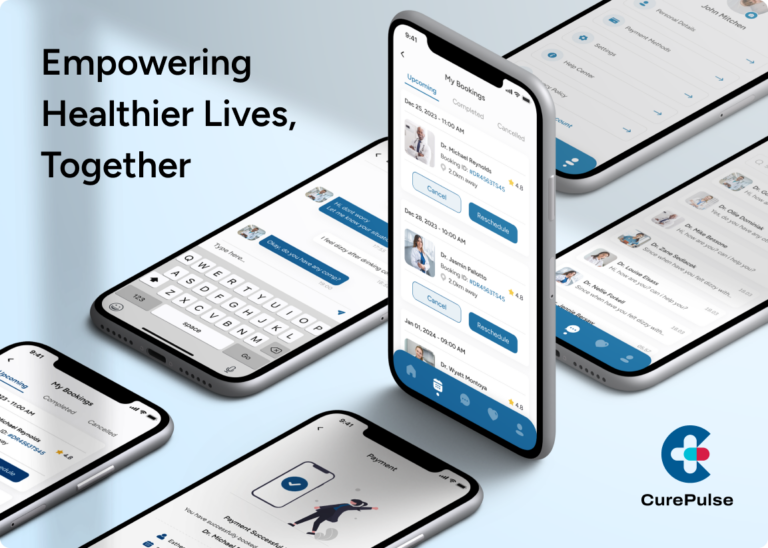Crypto Wallet App Development: Features,...
April 14, 2025

According to a report by MarketsandMarkets, the global AI in healthcare market is projected to reach $67.4 billion by 2027, growing at a CAGR of 44.9% from 2022 to 2027. This explosive growth underscores the increasing role of AI in transforming healthcare systems worldwide.
Artificial Intelligence (AI) is transforming industries worldwide, and healthcare is no exception. In 2024, AI-powered solutions are making patient care more precise, efficient, and personalized. From early diagnostics to personalized treatment plans, AI is playing a crucial role in elevating the quality of healthcare services globally. This guide explores how AI is revolutionizing healthcare and highlights its key applications in improving patient care.
AI’s integration into healthcare brings numerous benefits, especially in diagnostics, treatment, and patient management. Its ability to process vast amounts of data quickly and accurately is reshaping how healthcare providers approach patient care.
AI-powered diagnostic tools are enhancing precision by analyzing medical images and identifying anomalies that can often be missed by the human eye. With the help of advanced image recognition algorithms, AI is capable of detecting early-stage diseases like cancer, enabling timely treatment. The integration of AI in diagnostics also reduces the workload for medical professionals, allowing them to focus on patient care rather than extensive image analysis.
Also Read: AI-Powered EHR Software Development
AI in healthcare is leading the shift towards personalized medicine. By analyzing patient data such as genetic markers and medical history, AI algorithms can recommend tailored treatment plans that improve the chances of positive outcomes. AI-driven pharmacogenomics helps predict how individual patients will respond to medications, ensuring that treatments are customized to their unique needs, thus minimizing side effects and improving effectiveness.
AI’s role in healthcare goes beyond diagnostics and personalized treatment. Here are some additional areas where AI is making a significant impact:
AI-powered telemedicine allows patients to receive medical consultations remotely, breaking geographical barriers and improving access to care. Coupled with wearable health devices, AI continuously monitors patients’ vital signs, alerting healthcare providers to any abnormalities and enabling proactive care, especially for chronic conditions.
AI and robotics are revolutionizing surgeries by offering precision and accuracy beyond human capabilities. Robotic-assisted surgeries, powered by AI, provide real-time data analysis and allow surgeons to perform minimally invasive procedures with higher precision, resulting in shorter recovery times and fewer complications for patients.
Predictive analytics, powered by AI, enables healthcare providers to forecast potential health risks for patients by analyzing historical data and current health metrics. This allows for early intervention and preventive care, significantly reducing hospital readmission rates and improving overall patient outcomes.
Also Read: Healthcare Digital Transformation: Telemedicine Technology

AI is not only revolutionizing clinical procedures but also enhancing the operational efficiency of healthcare institutions. Here are the key benefits of AI in healthcare:
Faster and More Accurate Diagnoses: AI’s ability to analyze complex datasets ensures quicker and more reliable diagnoses, especially in imaging and radiology.
Reduced Errors: By automating data analysis and decision-making, AI minimizes human error, improving patient safety.
Improved Patient Outcomes: Personalized medicine and predictive analytics ensure that patients receive the right treatment at the right time.
Cost Efficiency: AI-driven processes optimize resource allocation, reduce manual workloads, and streamline operations, which lowers healthcare costs.
In 2024, several AI trends are set to dominate the healthcare industry:
Generative AI: Used for creating personalized prosthetics, implants, and simulation models for training healthcare professionals.
Natural Language Processing (NLP): NLP helps extract valuable insights from unstructured data such as patient feedback and clinical notes, aiding in better decision-making.
Internet of Medical Things (IoMT): Smart devices and wearables connected to healthcare systems enable real-time monitoring of patients, improving care for the elderly and those with chronic conditions.

While AI brings numerous benefits to healthcare, challenges remain. Ensuring transparency in AI decision-making, addressing data privacy concerns, and minimizing biases in AI models are critical to ethical AI implementation. Healthcare providers must work collaboratively with AI developers to ensure that AI solutions are secure, fair, and reliable.
As AI continues to evolve, its integration into healthcare will become even more seamless, enabling healthcare providers to offer faster, more accurate, and personalized care. The future of healthcare lies in the strategic and responsible use of AI, ensuring that it enhances patient outcomes while addressing ethical considerations.
AI-powered healthcare is transforming the industry in 2024, offering improved patient care through faster diagnoses, personalized treatment plans, and enhanced operational efficiency. As AI continues to evolve, healthcare providers who integrate AI solutions will be at the forefront of delivering superior outcomes.
If you’re looking to harness the power of AI for your healthcare services, Inexture Solutions offers expert AI/ML development tailored to your specific needs. Let us help you revolutionize patient care with cutting-edge AI technology.